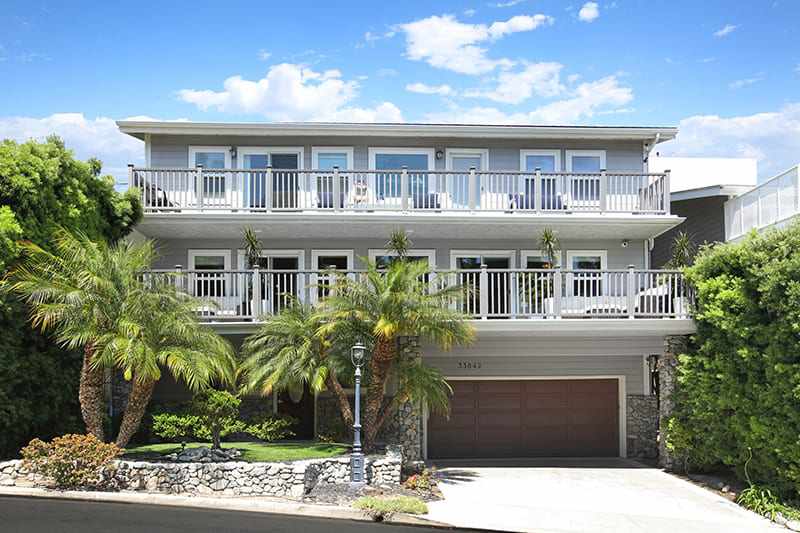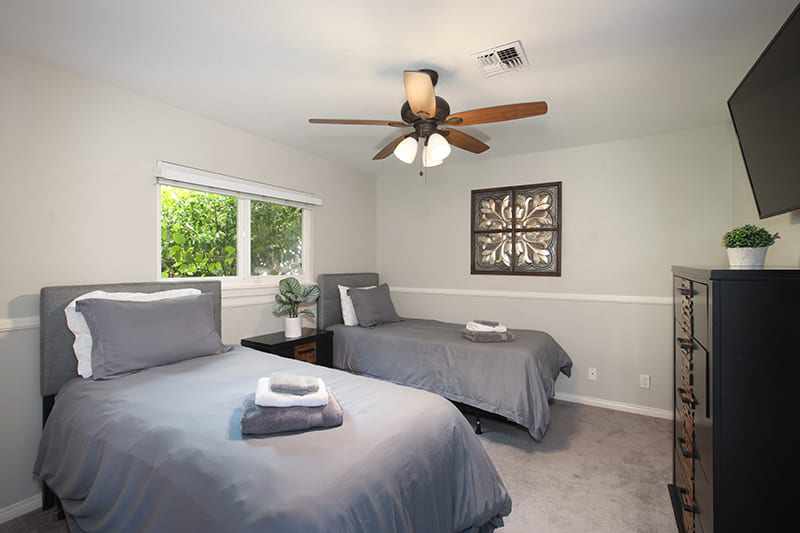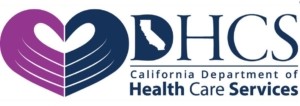Dual Diagnosis Addiction Treatment Center
Substance abuse and addiction often go hand in hand with mental illness due to the way chronic use of drugs and alcohol affect the brain. At the same time, mental illness can trigger substance abuse given the way drugs and alcohol can make symptoms like depression and anxiety go away temporarily. The diagnosis of both a mental illness and substance use disorder is called a dual diagnosis, or a co-occurring disorder.
Dana Point Residential Mental Health specializes in dual diagnosis treatment to help clients achieve a successful and long-term recovery from addiction. Here’s more about dual diagnosis treatment, and how we are devoted to helping you or a loved one overcome substance abuse and co-occurring disorders.
What Causes a Dual Diagnosis?
A dual diagnosis can be caused by one factor or a combination of them. Therapists at Dana Point Residential Mental Health facility work closely with patients to identify the root causes of both their mental illnesses and substance use disorders so they can tailor treatment plans accordingly.
The National Institute on Drug Abuse (NIDA) reports that a dual diagnosis may be caused by meeting certain risk factors for both disorders, such as having a family history of mental illness, addiction, or both; being sensitive to the effects of drugs; and being exposed to stress or trauma. A dual diagnosis may also be caused by self-medication (using drugs or alcohol to treat symptoms of mental illness), or by chronic substance abuse that alters brain chemistry to result in mental illness.
What Is the Prevalence of Dual Diagnosis?
An estimated 50 percent of people with a mental illness will also experience a substance use disorder at some point in their lives, and vice versa. The Missouri Department of Public Health reports that 37 percent of people with alcohol use disorder and 53 percent of people with drug use disorders have at least one serious mental illness. Furthermore, of all Americans diagnosed with a mental illness, 29 percent report currently misusing drugs and alcohol.
Patients with a dual diagnosis should be treated for both disorders at the same time to prevent the untreated disorder from causing the treated disorder to relapse. For example, a person with depression and alcohol use disorder who only receives treatment for alcohol use disorder will continue to suffer from depression and may relapse and start drinking again later on in an effort to combat their symptoms.
We’re Here For You
Sometimes talking over the phone is easier. We’re here to listen to your questions and help get you answers.
What Is Dual Diagnosis Treatment?
Dual diagnosis treatment at Dana Point Residential Mental Health facility combines behavioral therapies, and pharmacotherapy (the use of medications) into a comprehensive treatment program. The first stage of dual diagnosis treatment may start with drug and alcohol detox, where we partner with detox facilities to help patients overcome physical dependence on drugs and alcohol. Following detox, patients transition into an inpatient residential treatment program to receive behavioral therapies that address both the addiction and mental illness.
Evidence-based therapies for dual diagnosis include cognitive-behavioral therapy (CBT), dialectical behavioral therapy, and contingency management. These therapies help patients and therapists identify the root cause of one or both disorders, and teach patients how to navigate their lives in a healthier, more functional and productive way without turning to drugs and alcohol. Patients may also be prescribed medications that help them manage symptoms of the substance use disorder and their mental illness.
Recovering From Dual Diagnosis With Dana Point Residential Mental Health facility
Dana Point Residential Mental Health in Orange County, California, is ready to help you or your loved one recover from both addiction and mental illness with dual diagnosis treatment. Our inpatient residential treatment programs are tailored for each patient and can include a wide range of evidence-based behavioral therapies.
Contact us today at 866-918-2135 to begin the admissions process and to learn more about our available drug and alcohol treatment programs.









